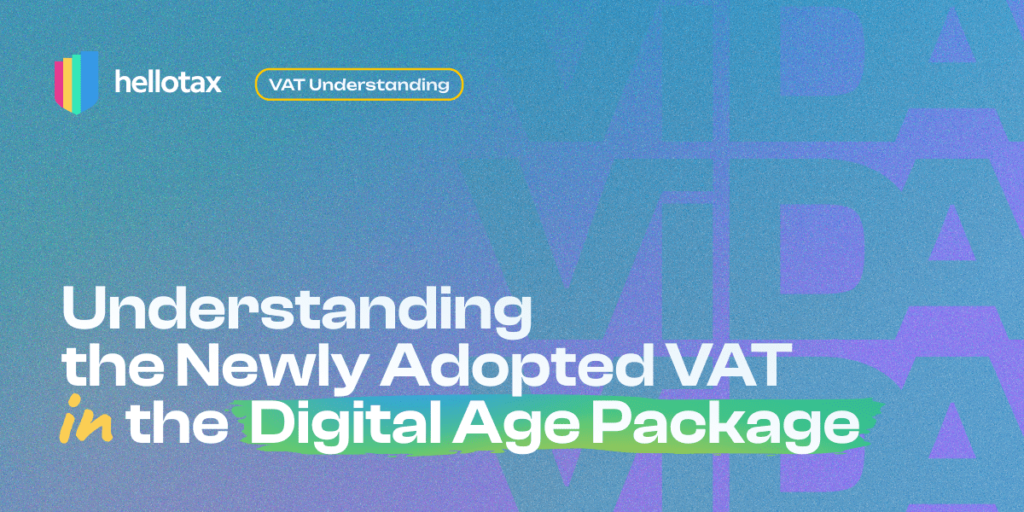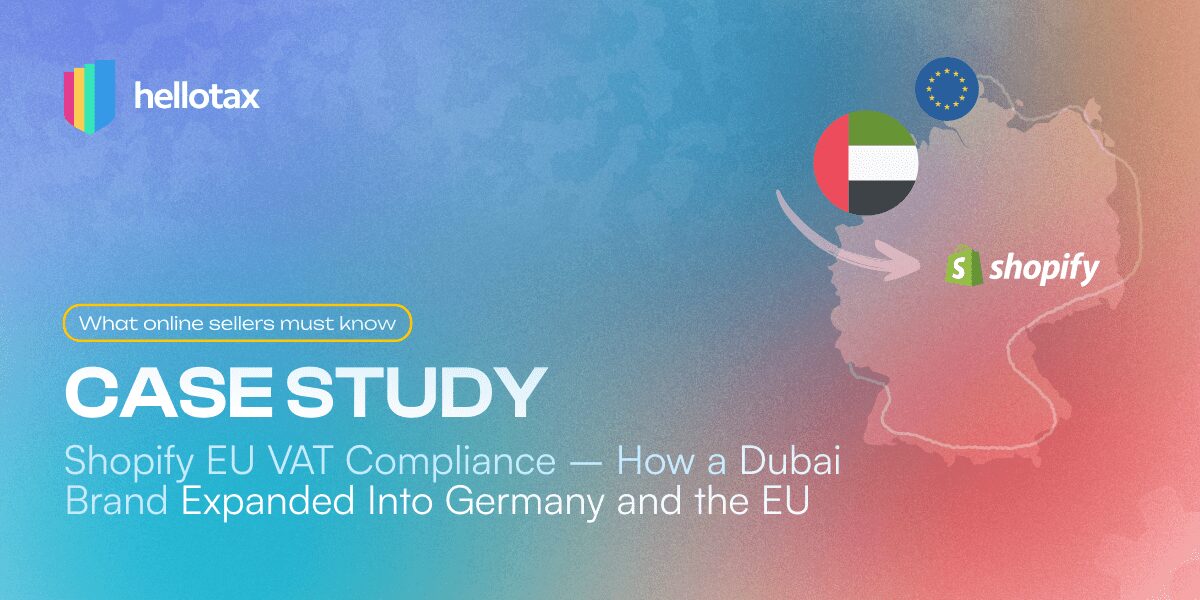The European Council has recently approved the “VAT in the Digital Age” package. This set of rules modernizes and streamlines the EU’s Value Added Tax (VAT) system. If you are an online seller in the European Union, these changes can affect how you report VAT, handle invoices, and manage registrations.
Brenda Varela
Last Updated on 16 September 2025
In this article, we outline the main points of the new legislation and explain what it means for your e-commerce business.
To check on our previous article with broader information on the topic, please click here
1. What Is the ‘VAT in the Digital Age’ Package?
The “VAT in the Digital Age” package is a group of measures designed to:
- Modernize VAT reporting: Require fully digital VAT reporting by 2030 for B2B sales across EU member states.
- Clarify VAT obligations for online platforms: Make many platforms responsible for collecting VAT on short-term accommodation and passenger transport if the service provider is not registered for VAT.
- Improve the One-Stop Shop (OSS) scheme: Expand the OSS so businesses avoid multiple VAT registrations in different EU countries.
Why These Changes Matter
- Increased efficiency: Fully digital reporting reduces paperwork and speeds up VAT filing.
- Less fraud: Digital reporting and platform responsibilities help prevent VAT evasion.
- Lower administrative burden: A more comprehensive OSS helps sellers focus on business growth instead of juggling VAT across multiple countries.
2. Key Components of the Package
2.1 Digital VAT Reporting by 2030
By 2030, EU businesses selling goods or services to other EU businesses must submit digital invoices and VAT reports. Consequently, online sellers can expect:
- Streamlined compliance: Real-time data exchange between tax authorities.
- Better cross-border tracking: Automated systems will gather transaction data, reducing the chance of errors.
What You Need to Do
- Prepare for e-invoicing: Update your invoicing and accounting systems to manage digital reporting.
- Monitor national timelines: Each member state may set its own specific dates within the EU’s overall deadlines.
2.2 VAT Responsibilities for Online Platforms
Online platforms for short-term accommodation or passenger transport will often act as “deemed suppliers.” As a result, they will:
- Collect and remit VAT on transactions where the individual provider does not charge VAT.
- Support unregistered providers by taking care of VAT obligations on their behalf.
What You Need to Do
- Check platform contracts: Ensure they clarify who is responsible for VAT.
- Stay informed: Watch for updates from your platform so you know how these changes affect you.
2.3 Improved and Expanded One-Stop Shop (OSS)
The OSS already simplifies VAT for cross-border sales of goods and services within the EU. Under the new rules, the OSS will:
- Cover more transactions: Reduce the need for multiple VAT registrations.
- Lower admin costs: Give sellers more time to focus on growth.
What You Need to Do
- Evaluate the OSS: Check if you can include more of your sales in the OSS.
- Consider expert help: A VAT compliance partner, such as hellotax, can help you minimize errors and stay compliant.
3. Timeline and Next Steps
- Entry into force: The new rules become official 20 days after their publication in the Official Journal of the EU.
- Regulations: They apply automatically and do not require further action by member states.
- Directive: Each member state must introduce it into national law, which may involve extra legislative steps.
Stay Informed
Keep an eye on announcements from national authorities and the European Commission. Different countries may have specific requirements, so it helps to have the right support in place.
4. How hellotax Can Help
Staying on top of new VAT rules can be challenging. At hellotax, we:
- Offer automated VAT solutions to handle reporting, filing, and ongoing compliance.
- Provide expert guidance on the One-Stop Shop (OSS) and other cross-border VAT obligations.
- Help you remain compliant as regulations change, saving you time and money.
Interested in learning more?
Contact our team to find out how we can tailor our solutions to your specific needs.
5. Conclusion
The EU’s “VAT in the Digital Age” package is now officially adopted. Online sellers should prepare for digital VAT reporting, new platform VAT obligations, and an enhanced One-Stop Shop. By planning ahead, you will stay compliant and remain competitive in the rapidly evolving e-commerce market.
Ready to optimize your VAT compliance?
Reach out to us at hellotax and let our experts guide you through these changes. Focus on growing your business while we handle the rest.
Boost Your EU VAT Compliance with hellotax
Stay ahead of the latest VAT rules and ensure seamless compliance.
Get in touch today and let us help you navigate these new regulations!




